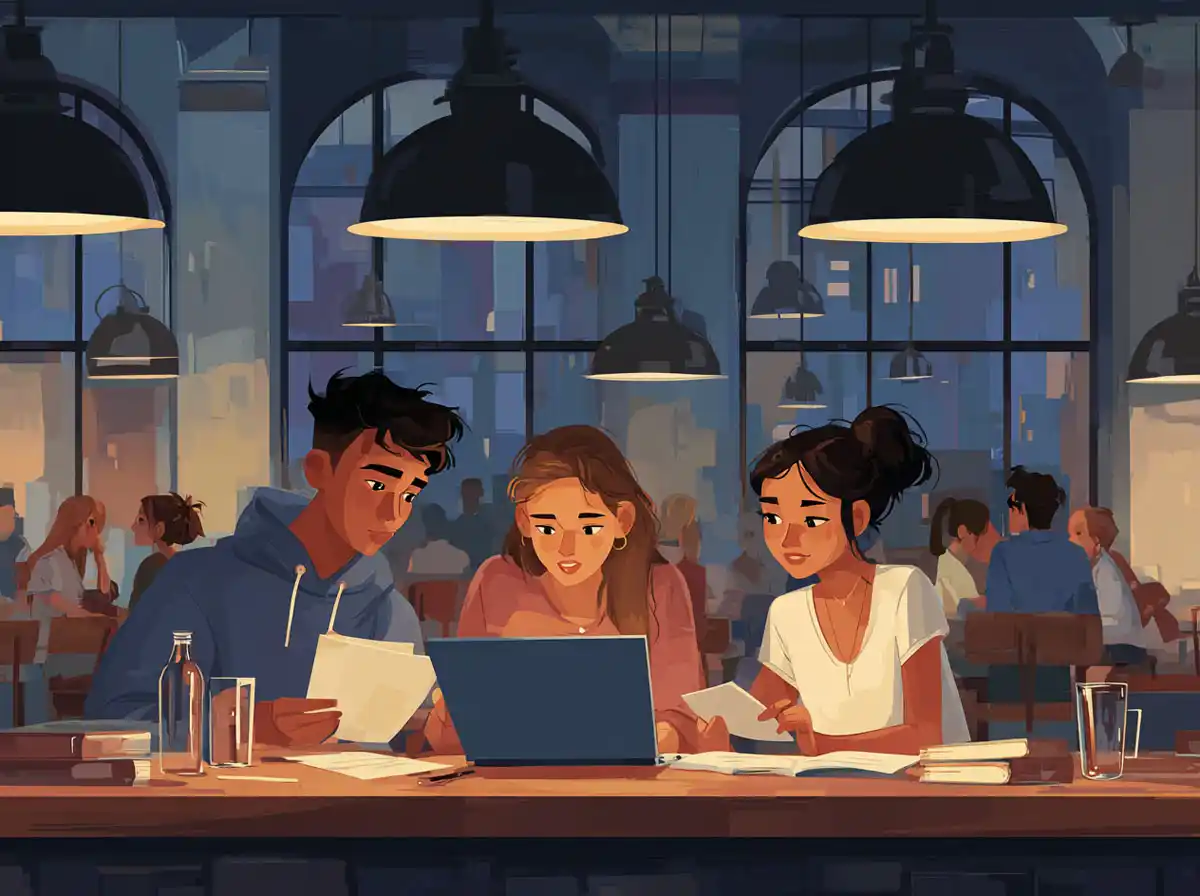Mesa
Mesa is the Galician word for “table.” It’s an essential piece of furniture found in virtually every home, office, and public space. Understanding how to use this word correctly can help you navigate conversations about everyday life in Galician.
Mesa: Table
A comida está servida na mesa.
Mesa de cociña: Kitchen table
Necesitamos unha nova mesa de cociña para o noso apartamento.
Mesa de traballo: Work table or desk
O meu mesa de traballo está sempre cheo de papeis.
Mesa redonda: Round table
Prefiro unha mesa redonda para as nosas reunións familiares.
Mesa de comedor: Dining table
A mesa de comedor é o lugar onde a familia se reúne.
Usage in Different Contexts
The word mesa can be used in various contexts. For instance, in a restaurant, you might hear:
Reservar unha mesa: To reserve a table
Quero reservar unha mesa para dúas persoas.
In an office setting, you might refer to a meeting table as:
Mesa de reunións: Meeting table
A mesa de reunións está preparada para a presentación.
Cadeira
Next, let’s discuss the word cadeira, which means “chair” in Galician. Like tables, chairs are ubiquitous and come in various forms. Knowing how to describe different types of chairs can enhance your vocabulary significantly.
Cadeira: Chair
Sentarémonos na cadeira da sala.
Cadeira de oficina: Office chair
A cadeira de oficina debería ser ergonómica.
Cadeira de rodas: Wheelchair
Necesita unha cadeira de rodas para desprazarse.
Cadeira de brazos: Armchair
Gústame ler na miña cadeira de brazos.
Cadeira de comedor: Dining chair
As cadeiras de comedor son moi cómodas.
Usage in Different Contexts
The term cadeira is equally versatile. Here are some examples of how it can be used in different settings:
Cadeira de xardín: Garden chair
Colocamos as cadeiras de xardín arredor da mesa ao aire libre.
In an academic setting, you might refer to:
Cadeira do profesor: Teacher’s chair
O profesor sentouse na cadeira do profesor antes de comezar a lección.
Cultural Significance
In Galician culture, the mesa and cadeira play crucial roles in social and family life. The dining table, or mesa de comedor, is often the centerpiece of family gatherings, where meals are shared, and stories are told. Similarly, the cadeira is not just a piece of furniture but a symbol of comfort and hospitality.
Traditional Settings
In traditional Galician homes, you might find a sturdy wooden mesa and intricately designed cadeiras. These pieces are often passed down through generations, symbolizing family heritage and continuity.
Mesa de madeira: Wooden table
A mesa de madeira na cociña era da miña avoa.
Cadeira antiga: Antique chair
A cadeira antiga no salón é moi valiosa.
Modern Usage
In modern Galician homes and offices, you will find a variety of tables and chairs designed for different purposes. Ergonomics and style have become important considerations, especially in work environments.
Mesa de cristal: Glass table
A mesa de cristal dá un toque moderno ao comedor.
Cadeira ergonómica: Ergonomic chair
A cadeira ergonómica axuda a evitar dores de costas.
Public Spaces
In public spaces like parks, restaurants, and libraries, tables and chairs serve functional as well as social purposes. Knowing the right terms can help you navigate these spaces more effectively.
Mesa de parque: Park table
Sentamos na mesa de parque para un picnic.
Cadeira de biblioteca: Library chair
A cadeira de biblioteca é ideal para estudar.
Common Phrases and Idioms
Just like in any language, certain phrases and idioms involving tables and chairs are commonly used in Galician. These expressions can add flavor to your language skills and make your conversations more engaging.
Poñer na mesa: To put on the table (to discuss openly)
Temos que poñer na mesa todos os problemas.
Levantar a mesa: To clear the table
Despois da cea, sempre levanto a mesa.
Sentar na cadeir: To sit in the chair (take a position of power)
Finalmente, el sentou na cadeir da empresa.
Learning Tips
Here are some tips to help you master these words and their usage:
1. Practice with Flashcards: Create flashcards with the Galician word on one side and the English translation on the other. Include example sentences to provide context.
2. Use in Daily Conversations: Try to incorporate these words into your daily conversations. Whether you are at home, in a restaurant, or at work, practice using mesa and cadeira in different contexts.
3. Watch Galician Media: Watching Galician films, TV shows, or even YouTube videos can help you see and hear how these words are used in real-life situations.
4. Engage with Native Speakers: If possible, engage in conversations with native Galician speakers. This will not only improve your vocabulary but also your pronunciation and understanding of cultural nuances.
5. Write Short Paragraphs: Write short paragraphs or essays using the words mesa and cadeira. This exercise can help reinforce your understanding and usage of these terms.
Conclusion
Understanding the words mesa and cadeira is more than just learning their translations. It’s about grasping their cultural significance, varied usage, and the role they play in daily life. By incorporating these words into your vocabulary and practicing their use in different contexts, you can enhance your Galician language skills and gain a deeper appreciation for the culture.
Remember, language learning is a journey that requires patience, practice, and immersion. Keep exploring, practicing, and engaging with the language, and you will find yourself becoming more proficient and confident in your Galician language abilities. Happy learning!










